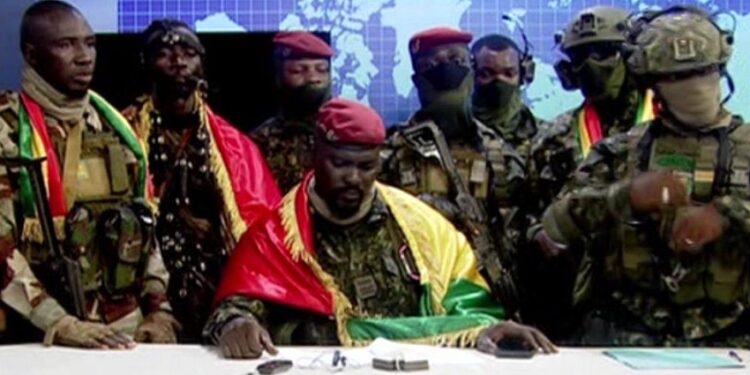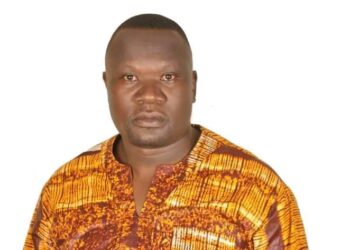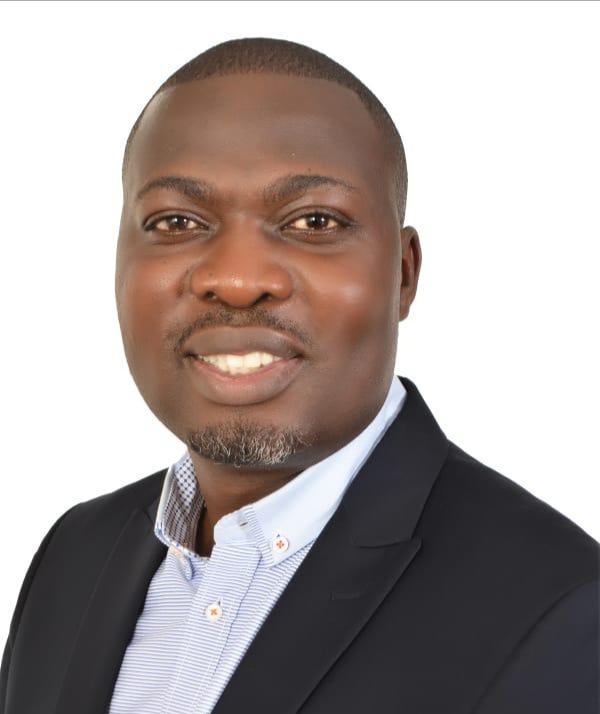The increasing probability of coups will make Africa in general less predictable and stable, a negative for investors that could end up worsening the economic situation and possibilities of getting back to the old order of the post independence coups across the entire Africa
A coup is an illegal and overt attempt by the military or other civilian officials to unseat sitting leaders. A coup can be against a coup or any other form of authority which includes democratic and authoritarian authorities.
The costs of coups in Africa are no longer an academic question. Following a spate of military interventions, first in Zimbabwe in 2017, and then in Chad, Mali, Guinea, a coup was also narrowly averted in Niger in March 2021, Burkanafaso and the recent movement of troops in Kishasha which was possibly an attempt against DRC president Felix Tshekedi
The escalating conflict between world powers scrambling for economic influence in Africa is an outstanding masterminder of the prevailing military coups. There is literature accusing major international powers such as France and the United States of backing military coups in some African countries over the past years. Their aim is to undermine the growing interests of other international powers, and Russia and China in particular.
For example, in Guinea, China has strong influence through 14 private and state-owned companies involved in bauxite mining and processing. Furthermore, Guinea is home to the Simandou mine, the world’s largest known iron ore deposit of its kind. Two Chinese companies, Rio Tinto and Hongqiao, are operating in the giant mine. China, which is the world’s largest producer and consumer of aluminum, controls 50 per cent of Guinea’s bauxite exports, estimated at 52.5 million tons in 2020.
It is believed that the leader of the recent coup in Guinea maintains strong ties with both the United States and France. The two western countries are likely to use these ties, with help from the new political forces in Guinea, to reduce China’s presence.
However, it should be noted that several African countries consider China as an ideal strong partner in the process of development, thanks to the development efforts it leads through the Belt and Road Initiative as well as aid and loans, unlike western powers accused by some of being the hidden hand involved in stirring up civil wars that hit several African countries.
Although African countries are prone to other conditions common for coups, like poverty, corruption and poor economic performance. I find no evidence that coups have a pacifying effect on state repression. Rather, coups appear to make matters worse, even end targeting unaccountable embezzlements and committing large-scale human rights violations
There’s urgent need for a reconceptualization of the notion of power. Power belongs not only to the presidents, kings, army or to the state or to those that control official discourses, but also inheres in the general populace. The everyday resistances are capable of bringing about the structural changes that can provide formal power to the underclasses and not necessarily armies all the time. This power of the people can also manifest itself through democracy or people centred rebellions like demonstrations and uprisings which are often Constitutional means.
Military and autocratic governments do not appear to successfully further the democratization agenda on the African Continent. Democracy is generally seen as the most ideal form of citizen organization as it is founded on popular control and political equality.
Military governments, on the other hand, do not acquire their authority to govern through democratic means and are thus less inclined towards good governance and the development of democratic institutions. Furthermore, the military coups may act as a trigger to more coups.
Policy considerations must, therefore, emphasize the development and sustainment of democratic institutions to ensure good governance and adequately manage ethnic and religious tensions within the polity
It is therefore important not to underestimate the long term damage that coups can generate, even where they are seen to deliver. By undermining the constitution and demonstrating how easily power can be taken through the barrel of a gun, coups weaken existing political institutions and encourage political violence. They may also set in motion a cycle of counter-coups and conflict that can increase the prospects of civil war, as in the DRC and Nigeria.
In turn, this facilitates the militarisation of the state, undermining core democratic processes while enabling former military leaders to continue to dominate the political scene for decades by swapping their fatigues for civilian clothing.
In September 2021, the UN Secretary-General António Guterres voiced concern that “military coups are back,” and blamed a lack of unity amongst the international community in response to military interventions. Unfortunately, the Security Council and African Union have not had any standing resolution to effectively deter them.
Military coups and wars in Africa account for the increasing numbers of refugees, and displaced people forced to move to more stable areas. Currently, Africa hosts one-third of the world’s forcibly displaced population.
This refugee crisis created huge economic burdens such as plummeting growth rate, soaring poverty rates, low median personal income, deteriorating infrastructure, family breakdown resulting from forced displacement and casualties, children kidnappings and recruitment in armed conflicts.
Countries such as Sudan, Sierra Leon, Liberia, Rwanda and Mali were hit by military coups and civil wars that lasted for tens of years leaving more than 13 million people dead and rendering about 33 million others homeless.
Military coups create tensions and instability in involved countries, distract leaders and peoples alike from investing huge resources and encourage widespread financial corruption. In Nigeria for example, political tensions and coups over the past decades led the country’s natural resources, and oil in particular, to be plundered, pushing the country to the top of the list of the most corrupt African countries.
Moreover, political instability in Africa blocks economic development efforts. Some 15 out of 20 African countries ranked as the most fragile on the Fragile States Index 2021. These include the Central African Republic, Somalia, Sudan, the Democratic Republic of the Congo, Chad, Guinea and others, all of which are suffering from instability.
The conclusion is that military coups in Africa have a negative impact not only on the involved countries, but also on the whole continent. The impact spreads beyond the continent to also hit the global economy and markets by significant rises in the prices of oil, minerals and agricultural crops. This eventually causes waves of global inflation. Therefore, political and security stability in Africa continues to be the only way for establishing strong and promising economies that take serious steps towards development using real popular participation.
BYAMUKAMA RICHARD BARD
LAWYER AND STUDENT OF BACHELORS DEGREE IN SECURITY AND STRATEGIC STUDIES
byamukamarichardbard@gmail.com
Do you have a story in your community or an opinion to share with us: Email us at editorial@watchdoguganda.com













